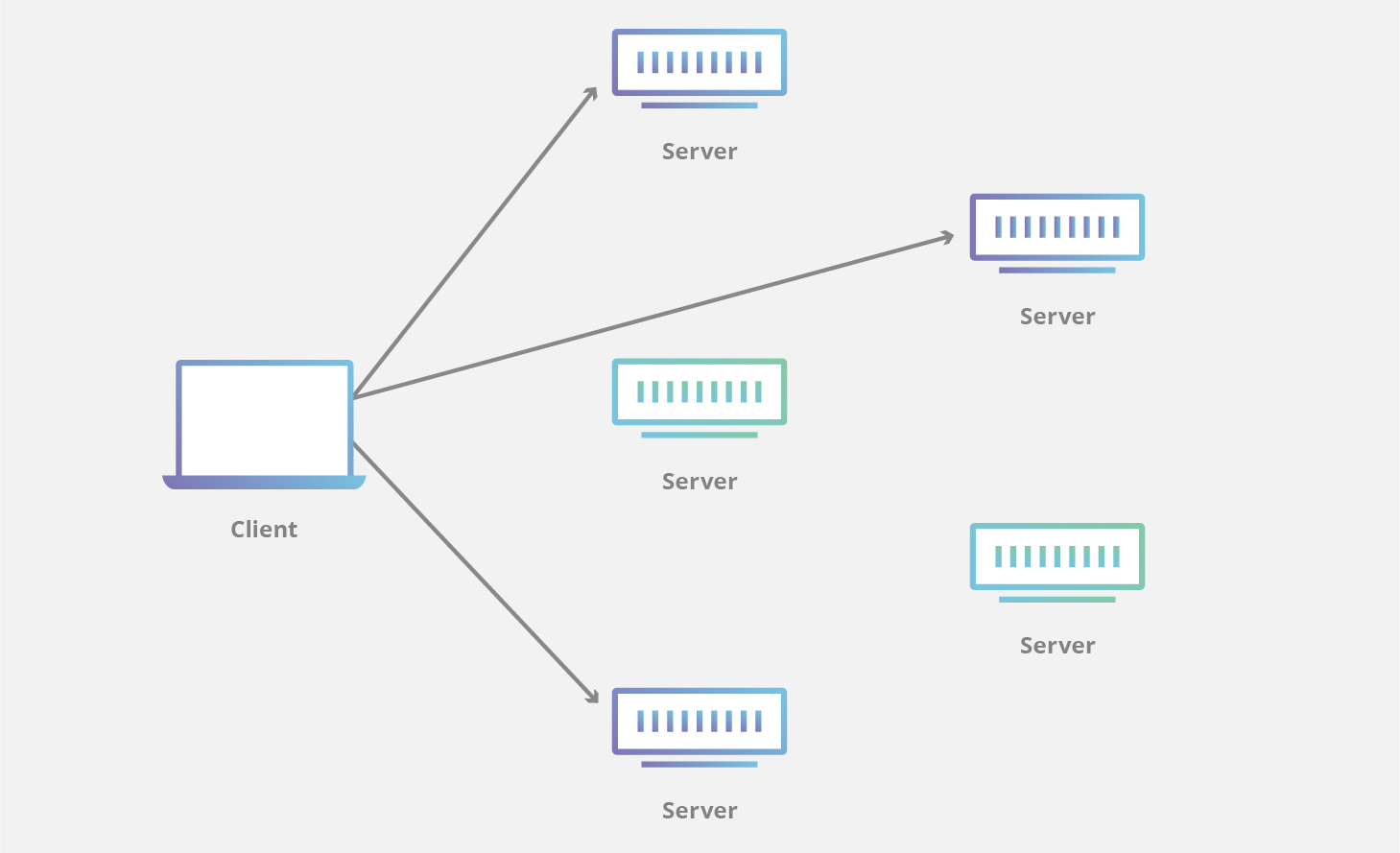
If you have a website, you need a server to host it. The server provides bandwidth and disk space for your website. Good hosting providers will offer support to customers. Without customer support, your website is likely to crash and lose its visitors. Hosting is a major purchase. Customer support is essential. Learn more about the features that you should be looking for in a hosting package.
Web hosting gives you a place to store your website.
Web hosting is the rental of a server on which to store your website. The space will hold all files that you have on your website. It will also include your website’s DNS Server and any other software. This space's size will vary depending upon the site and content. The more content on your website, you will need more space. Many web hosting packages come with up to 10GB disk space, 50 email accounts, and a free domain.
Web hosting requires that you have enough disk space to store all your files. This disk space is not the same as bandwidth. It is the amount of data your visitors can access to your website. Before you sign up for webhosting, it is important to verify how much space you will need.
It has bandwidth
A website's bandwidth is an important factor that will determine its success. Having sufficient bandwidth will improve the experience of visitors and reduce bounce rates. A good hosting plan includes a variety of bandwidth options, and each host has a plan that suits the needs of a specific type of website. For example, a small website will need a few GBs of bandwidth to start, and it may only need more bandwidth if traffic suddenly spikes.

Bandwidth is how much data can be transferred between websites. This applies to documents, emails, as well as videos. There are many hosting companies that offer different bandwidth plans. These range from daily, weekly and monthly. It is important to estimate how much data you will transfer each monthly in order for you to determine the needs of your website. You'll have to pay an additional monthly fee if your data transfer exceeds the limit.
It gives you disk space
Disk space is an allocated resource on a server for a hosting customer. This space is used to store your website content and emails. The type of website you wish to create and the content of your site will determine how much disk space you get. Disk space is also scalable. Hosting companies will typically offer monthly plans that include varying amounts or disk space. As needed, you can upgrade or downgrade the plan.
One of the most crucial elements of any hosting plan is disk storage. Hosting plans typically offer 20GB to 100GB space. Dedicated servers can provide up to 1TB. Bluehost allows users to view the disk space on their server as well as the files and bandwidth they are using.
It provides customer support
When buying hosting, you should be sure to ask the provider about its customer support services. While it is nice to have chat support that is friendly and helpful to answer questions, it is equally important to inquire about the technical skill of the support personnel. Some hosting companies employ highly skilled support staff. It is also important to find out how long it takes for the customer service team responds to your queries. If the response time for your request is slow, you might have to wait a while before you get assistance.
Customer support is an essential part of running a successful reseller hosting business. A satisfied client will be more likely to renew their contract and may even recommend your services to others. It is crucial to offer several channels for clients to reach support staff so that they can provide 5-star support. Good customer service systems should include ticket-based systems, instant channels, and self help resources.

It is scalable
Hosting that is scalable is one of the best investments you can make for your website. Scalability refers a provider's ability adjust to changes in demand. This can be physical processes, or software components such as cloud storage. You want a provider that can grow with you.
Scalability is essential for business users and makes it possible for businesses of all sizes to compete. Cloud computing offers flexibility, allowing businesses to increase and decrease computing resources depending on their budget. You can easily scale up or decrease the number of websites you have without paying more. This feature is especially helpful for growing businesses. It can easily migrate to a dedicated, physical server or cloud hosted dedicated server if required.
FAQ
How to Create a Static Website
To create your first static website, you'll need to choose between two options:
-
Content Management System (a.k.a. WordPress): WordPress is a Content Management System (a.k.a. This will allow you to create an essential website.
-
You will need to create a static HTML website. This is easy if you know HTML.
A professional may be able to help you create a large website.
But starting, you should probably go with option 2.
Can I build my website using HTML & CSS?
Yes! If you've followed the steps, you should now be able create your website.
Now that you know how to create the structure of a website, you'll also need to learn some HTML and CSS coding.
HTML stands for HyperText Markup Language. It's like creating a recipe for a dish. You would list ingredients, directions, etc. HTML can also be used to inform a computer if certain parts of text should appear bold, underlined and italicized. It is the language used to describe documents.
CSS stands as Cascading Stylesheets. It is like a stylesheet that you use to create recipes. Instead of listing each ingredient and instructing, you can write down general guidelines for font sizes, colors and spacing.
HTML tells the browser how a page should look; CSS tells it what to do.
Don't panic if either of these terms are confusing to you. Follow these tutorials to create beautiful websites.
How do I design a website.
Your customers will first need to understand the purpose of your website. What are they looking at when they visit your site.
What problems might they have if they don't find what they're looking for on your site?
This knowledge will help you to identify the problems and then solve them. You also need to make sure that everything on your site looks right. It should be easy to use and navigate.
You should have a well-designed website. It shouldn't take too much time for it to load. People won't stay as long if it takes too long to load. They'll go somewhere else instead.
You need to consider where your products are located when you build an eCommerce website. Are they all in the same place? Are they in one location?
You must decide whether to sell one product only or many products simultaneously. Are you looking for a single product to sell or multiple products?
You can start building your site when you've decided on these questions.
Now it is time for you to concentrate on the technical aspect of things. How will your website work? Will it run fast enough? Can people get to it quickly from their computers?
Will they be able buy anything without having pay an extra fee? Are they required to register before they can buy anything?
These are essential questions that you need to ask yourself. You'll be able to move forward once you have the answers to these important questions.
Does A Good Portfolio Make Me More Likely To Be Hired As A Web Developer?
Yes. If you want to land a job as web designer or developer, your portfolio is essential. The portfolio must show examples of your skills and experience.
Portfolios typically include examples of past projects. These samples can show off your ability to do any task. You should have everything in your portfolio, including mockups.
Statistics
- When choosing your website color scheme, a general rule is to limit yourself to three shades: one primary color (60% of the mix), one secondary color (30%), and one accent color (10%). (wix.com)
- The average website user will read about 20% of the text on any given page, so it's crucial to entice them with an appropriate vibe. (websitebuilderexpert.com)
- In fact, according to Color Matters, a signature color can boost brand recognition by 80%. There's a lot of psychology behind people's perception of color, so it's important to understand how it's used with your industry. (websitebuilderexpert.com)
- It's estimated that in 2022, over 2.14 billion people will purchase goods and services online. (wix.com)
- It enables you to sell your music directly on your website and keep 100% of the profits. (wix.com)
External Links
How To
What is Website Hosting?
Website hosting is the location where people go when they visit websites. There are two types:
-
Shared hosting is the cheapest. Your website files reside on a server owned by someone else. Customers visiting your website send their queries over the Internet, to that server. The request is sent to the server's owner who then passes it on to you.
-
Dedicated Hosting - This option is the most costly. Your website will reside on a single server. Your traffic is private because no other websites have shared space on this server.
Because it is less expensive than dedicated hosting, shared hosting is preferred by many businesses. Shared hosting allows you to have your website run by the company who owns the server.
There are pros and disadvantages to each option. Here are the differences:
Shared Hosting Pros:
-
Lower Cost
-
Easy To Set Up
-
Regular Updates
-
It can be found at many web hosting providers
Shared hosting is often as cheap as $10 per month. However, this price typically includes bandwidth. Bandwidth is the data transfer speed that you have over the Internet. Even if you upload only photos to your blog you might still have to pay more for large amounts of data that you transfer through your account.
You'll soon discover why you paid so much more for your previous host when you get started. The majority of shared hosts offer limited customer support. Their techs will occasionally walk you through setting up your site, but you're on your own after that.
A provider with 24-hour telephone support is a good choice. They will assist you with any problems that may arise while you're sleeping.
Cons of dedicated hosting
-
More Expensive
-
Less Common
-
Specific Skills Required
With dedicated hosting, you get everything you need to run your website. You won't worry about how much bandwidth you are using or how much RAM (random Access Memory) you have.
This means you'll have to spend more upfront. But once your online business starts, you'll realize you don't need any technical assistance. You'll quickly become an expert at managing your server.
Which is better for my business?
This depends on the kind of website that you want. If you only want to sell products, then shared hosting might be the best choice. It's easy to set up and maintain. It's easy to set up and maintain, as you share a server with other sites. You will likely be updated frequently.
However, dedicated hosting can be a great option if you're looking to build a community around the brand. Instead of worrying about traffic, you can concentrate on building your brand.
Bluehost.com is the best web host for both. Bluehost.com provides unlimited monthly data transfer, 24/7 support, free domain registration and a 30-day money back guarantee.